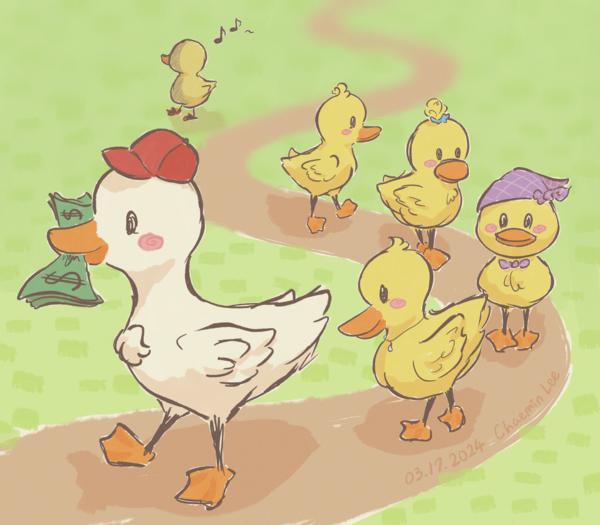For many students in Korea, both international and local, the act of joining clubs is not always necessarily out of passion for the club’s activities, but more often for the prospect of socialising and making friends. It’s common to see pre-existing friend groups entering many top-ranked universities in Korea, including KAIST. Many of them have attended specialized or higher-ranked feeder high schools for those universities, and given the language barrier between international and local students, it’s only natural for those who enter these universities without an existing friend group in their cohort to look for a place of belonging in extracurricular clubs.
However, many students do not take the initiative to socialize during the club recruitment process, or even after getting in. The status quo seems to be to wait until one of the seniors takes you under their wing or brings together a group of freshmen to help them get to know each other — not dissimilar to ducklings following their mother around.

Despite having taken part in several clubs during my time at KAIST, I still find it difficult to understand this phenomenon. It’s almost as if students join clubs expecting all the effort that goes into socializing to be done for them. One of the most common incentives that clubs provide to encourage — or force — students to socialize is the idea of social groups. The gist is that if the members of said social group take part in activities together, they earn points (credits), and the members with the most credits usually win an award of some sort by the end of the year or semester. Do you see why this article is titled as such?
The idea is innocent enough — the leadership teams within clubs want to encourage organic socialising among its members and introduce a little bit of fun with the credits system. However, there is a collection of negative outcomes that almost inevitably occur. The most unpleasant and my personal least favorite is finding the “flaky” members of the group — those that don’t partake in any of the social gatherings or find an excuse to not attend at the last minute. This kind of attitude is like an infection that spreads throughout the group incredibly quickly. The other members of said group are soon drained of their energy to put in the effort to socialise.
Another drawback is that this essentially puts a commercial value on group activities. The whole intention behind social groups is to help students make friends out of their own volition and as something that they enjoy doing — not an economic exchange of time for money. When a group starts to see social group activities this way, the atmosphere between group members when they meet up deteriorates, as each member does not feel as if the others value their presence — simply being there with the sole intention of earning credits turns the social gathering into a business transaction. Every now and then, you might end up in a group with a genuine leader who makes the effort to organize outings and include every member of the group without being toxic — even to those who just want to ride their coattails. If you are one of these types of people, I congratulate and thank you — it’s a role that often goes undervalued and unnoticed. Unfortunately, these characters are hard to come by and the off-chance of having them in your social circle can make or break the social life within clubs at Korean universities.
Is there a solution to this? Not an all-encompassing one. It is up to the leadership team and the more experienced members of university clubs to create an environment that allows new members to enjoy spending time with the other members. As soon as students view socializing as an exchange of time for credits, the club simply becomes a workplace. This issue isn’t necessarily built up over time — it simply takes one bad round of recruiting or one set of bad leadership for the problem to rear its head.
If you find yourself in a position where you are considering this type of social group activity to encourage socializing within the new members of your club, I encourage you to avoid turning this activity into a simple ‘time for points’ exchange. Provide students with value outside of winning prizes, whether it be a purpose, a goal, or even just an addition to their lifestyle that enhances their university experience. The value of friends and acquaintances made out of common enjoyment far outweighs interactions motivated by a process of gaining arbitrary points for an essentially meaningless prize at the end of the semester.

